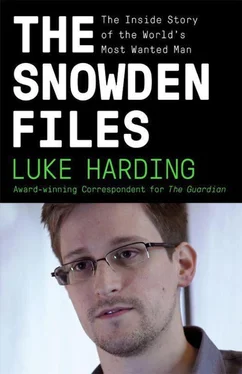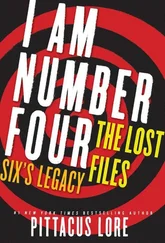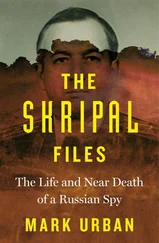The general theme of the official representations – all ‘on background’, of course – was that their Verizon story was far from impartial. It was misleading and inaccurate. But the administration high-ups were willing to sit down and explain the bigger picture. The offer, in essence, was that Gibson would be invited for a chat in the White House.
This sort of gambit had worked with US publications in the past, most notably with the New York Times back in 2004 when the paper first discovered President Bush’s warrantless surveillance programs. After ‘the chat’, it was made clear the Guardian might feel less enthusiastic about publishing. The subtext was: you don’t really understand how things work around here. ‘I think they thought they could flannel through me,’ Gibson says.
Her agenda was different. As she saw it, this encounter was a reasonable opportunity for government to raise ‘specific’ national security concerns. She told Bob and co she believed there was an overwhelming public interest in revealing the secret court order. The order, she said, was very general, with no operational detail, facts or findings. It was hard to see a prima facie case where it might cause damage. But she was open to listening to their concerns.
The men were used to getting their own way and seemed nonplussed by Gibson’s manner. Even in moments of high stress such as this, the editor’s tone was convivial and breezy – a disarming mix. In her previous incarnation as the Guardian ’s media editor, Gibson had dealt with many other people who tried to throw their weight about. They included the noisy CNN anchor Piers Morgan and the UK Prime Minister David Cameron – back then a mere public relations man for Carlton, a none-too-distinguished TV channel.
As the pressure was piled on, Gibson felt her accent growing more and more starchily British. ‘I began to sound like Mary Poppins,’ she jokes. Millar, meanwhile, Googled ‘DNI’, ‘Bob Litt’, ‘Chris Inglis’, ‘Sean Joyce’. What exactly were their backgrounds? Sitting over in DC, Ackerman was impressed by Gibson’s performance; he sent words of cheery encouragement by G-chat.
After 20 minutes the White House was frustrated. The conversation was going in circles. Litt and Inglis refused to raise any specific concerns on the grounds that even ‘discussing’ the secret Verizon document on the telephone amounted to a felony. Finally one of the team could take no more. Losing his temper, and growling in a thick accent, as if the star of a cop show, he shouted: ‘You don’t need to publish this! No serious news organisation would publish this!’
Gibson stiffened; the earlier grace and lightness of touch disappeared. She replied icily: ‘With the greatest respect, we will take the decisions about what we publish.’
‘It was: “How dare you talk to us like this?”’ Millar says. He adds: ‘It was clear that the administration wasn’t going to offer anything of substance. We were going to publish. It was game on.’
The White House team indicated they might escalate the issue. Gibson replied that the editor-in-chief – half way across the Atlantic – was unavailable. She said: ‘I’m the final decision maker.’ A deflated group wrapped up the conference call: ‘We seem to have reached an impasse we can’t get past.’
Gibson had resisted the administration’s attempts to cajole her, keeping her cool while sticking to the legal playbook. Ackerman says: ‘She didn’t budge. She was ramrod.’ He adds: ‘It took the Obama administration a long time to acclimate to the fact that they were not the ones in control, that she was… How often do they interact with people who are not part of their club?’
The encounter demonstrated the difference between newspaper cultures on either side of the pond. In the US, three big newspapers enjoy a virtual monopoly. With little competition, they are free to pursue leads at a leisurely, even gentlemanly, pace. The political culture is different too, with the press generally deferential towards the president. If anyone asked Obama a tough or embarrassing question, this was itself news.
In what used to be Fleet Street, by contrast, the media landscape was very different. In London, there were 12 UK national titles locked in a permanent, exhausting battle for survival, a Darwinian struggle to the death. The rivalry had grown more intense as print newspaper circulations declined. If you had a scoop, you published. If you didn’t, someone else would. It was dog-eat-dog, then grind up its bones.
The US authorities now tried to exert pressure in the UK. The British security service MI5 called Nick Hopkins, the paper’s security editor at the Guardian ’s London headquarters; the FBI’s people similarly called the paper’s no. 2, the deputy editor Paul Johnson. (Deputy director Joyce began: ‘Hello Paul, are you having a good day? We’ve been talking to Ms Gibson. We don’t feel we’ve been making progress…’) Attempts to reach Rusbridger personally were unsuccessful. The editor-in-chief was still on a plane. He had made it clear this was Gibson’s call.
The federal officials now acted sad rather than angry. But in DC, Ackerman was getting nervous. He was wondering whether guys with guns and wraparound shades might be standing outside his apartment in Dupont Circle, ready to whisk him away and interrogate him in a dark cell. He reasoned: ‘We had got off the phone with three extremely powerful and extremely displeased men, one of whom was the deputy head of the FBI.’
Over in Hong Kong, Snowden and Greenwald were restless; they were sceptical that the Guardian would have the sheer finger-in-your-eye chutzpah to publish. Greenwald signalled that he was ready and willing to self-publish or take the scoop elsewhere if the Guardian hesitated. Time was running out. And Snowden could be uncovered at any minute.
Just after 7pm, Guardian US went ahead and ran the story. It was, by any standards, an extraordinary scoop, but it was to be just the first one of many.
The article, with Greenwald’s byline on it, began: ‘The National Security Agency is currently collecting the telephone records of millions of US customers of Verizon, one of America’s largest telecoms providers, under a top-secret court order issued in April.’
Despite the failure of their conference call, the White House must never have really believed that the Guardian would have the audacity to publish the secret order. A few minutes after the story went live, Hayden sent a note to Ackerman, asking: ‘Are you guys going ahead?’
Being behind the curve in this way was to characterise the White House’s interactions in the days ahead. Senior officials were incredulous at the breakneck speed of publication. The NSA must have been chasing down the leak but was unaware the Guardian didn’t just have one top-secret document, but thousands. Gibson says: ‘We were absolutely moving at speed. We knew we had a really limited window to get stories out before it became a manhunt.’
Snowden had maintained the Verizon revelations would set off a public storm. Gibson and Millar were less persuaded; it was a good story, for sure, but how big would it go? The day’s tasks finished, Ackerman met his wife Mandy for dinner, sat down in a Korean restaurant, and ordered a large, calming beer. He pulled up the newly published Verizon piece on his iPhone. He showed Mandy. ‘Holy shit,’ she exclaimed. Ackerman looked at Twitter: the Guardian revelation was suddenly everywhere. ‘It was rapidly becoming a thunderclap,’ he says. He looked around. Could the two men sitting at the next table be FBI?
The paranoia was understandable. From now on the Guardian found itself the target of intense NSA scrutiny. Suddenly the world felt different. Jitteriness set in. It was unclear on what legal basis the NSA was spying on journalists going about their job and protected by the first amendment. But it was evident that whatever electronic privacy they had once enjoyed had now vanished. At 7.50pm Millar ran out of the office, got on the subway and returned to his home in Brooklyn; his twins were celebrating their fifth birthday, and he wanted to see them before they went to bed. (Millar told his daughter: ‘I didn’t want to miss you on your birthday, darling.’ She replied: ‘You’ve already missed my birthday, Daddy.’)
Читать дальше












